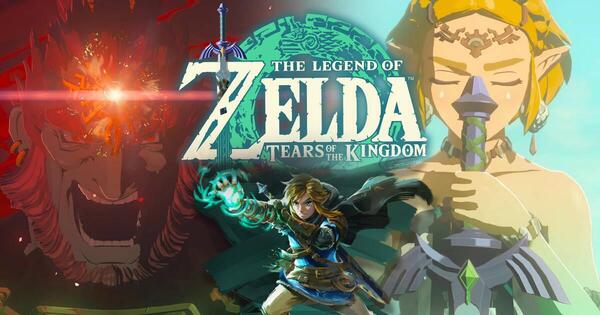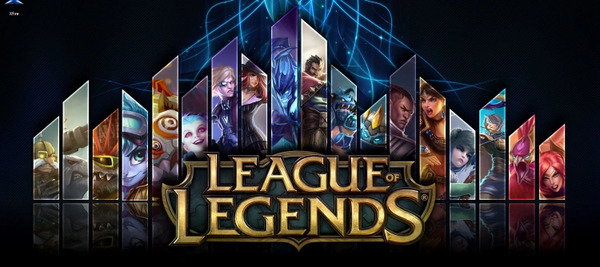
Introduction
The “FIFA” series, developed by EA Sports, has been a staple in the sports gaming industry for over two decades. With each annual release, millions of players eagerly anticipate the latest updates to gameplay mechanics, graphics, and player rosters. However, in recent years, the focus of the franchise has shifted dramatically due to the rise of the Ultimate Team mode. This game mode, where players build their dream teams using virtual cards, has not only become the central feature of “FIFA” but also the source of significant controversy. The implementation of microtransactions in Ultimate Team has sparked debates about gambling, fairness, and the impact on the gaming community. This article delves into the complex issue of microtransactions in “FIFA,” exploring their evolution, the ethical concerns they raise, and their influence on both the game and the broader industry.
The Birth of Ultimate Team
The Early Days: FIFA 09 and the Introduction of Ultimate Team

Ultimate Team was first introduced in “FIFA 09” as a downloadable content (DLC) add-on. Initially, it was a niche feature that allowed players to collect virtual cards representing players, kits, and other items. The goal was to build the best possible team by acquiring new cards through in-game currency earned by playing matches. At this stage, microtransactions were relatively modest, with the mode designed primarily as an optional extension of the main game.
Evolution and Expansion: From Add-On to Central Feature
As the popularity of Ultimate Team grew, EA Sports began to expand the mode’s scope in subsequent “FIFA” titles. By “FIFA 11,” Ultimate Team had become a fully integrated part of the game, offering more complex mechanics, including chemistry between players, trading on the transfer market, and various challenges. This shift marked the beginning of Ultimate Team’s transformation from a supplementary mode into the cornerstone of the “FIFA” experience, with microtransactions playing an increasingly prominent role.
The Rise of Microtransactions
Monetization Strategies: The Introduction of FIFA Points
With the growing popularity of Ultimate Team, EA Sports introduced FIFA Points, a premium currency that players could purchase with real money. FIFA Points allowed players to buy packs containing random cards, creating a shortcut to acquiring top-tier players without the need to grind through matches. This monetization strategy proved to be highly lucrative, leading to a significant increase in revenue for EA Sports.
The Allure of Packs: Chasing the Best Players
The random nature of the packs, combined with the excitement of potentially obtaining rare and valuable players, created a powerful incentive for players to spend money on FIFA Points. The psychology behind pack openings, which mirrors the thrill of gambling, became a key driver of microtransactions in “FIFA.” Players were enticed by the chance of obtaining star players like Lionel Messi or Cristiano Ronaldo, often spending significant amounts of money in pursuit of their dream team.
The Snowball Effect: How Microtransactions Became Integral to FIFA’s Success
As microtransactions became more prevalent, they started to influence the overall design of “FIFA.” Ultimate Team quickly became the primary focus of development, with other modes receiving less attention. The success of microtransactions led EA Sports to continually enhance Ultimate Team, adding new features, events, and promotions designed to encourage spending. This snowball effect ensured that microtransactions remained at the heart of the “FIFA” experience, driving both player engagement and company profits.
The Ethics of Microtransactions in FIFA
Gambling or Gaming? The Legal and Ethical Debate
One of the most significant controversies surrounding microtransactions in “FIFA” is whether they constitute a form of gambling. Critics argue that the randomized nature of card packs, combined with the use of real money, mirrors traditional gambling mechanics. This comparison has led to legal challenges in several countries, with regulators investigating whether FIFA Points and card packs should be subject to gambling laws.
Loot Boxes and the Global Response
The issue of loot boxes, which are similar to FIFA packs, has prompted regulatory scrutiny worldwide. Countries like Belgium and the Netherlands have taken action, banning the sale of loot boxes in video games that use real money. These regulations have forced EA Sports to modify or remove certain features of Ultimate Team in these regions. However, the debate continues in many other countries, where the legal status of loot boxes remains uncertain.
The Impact on Players: Addiction and Financial Consequences
The addictive nature of microtransactions has raised concerns about their impact on players, particularly younger audiences. Stories of players, especially minors, spending large sums of money on FIFA Points have become increasingly common. The combination of the game’s competitive nature and the desire to build the best team can lead to compulsive spending, resulting in significant financial consequences for some players.
The Role of Parental Controls and Awareness

In response to these concerns, EA Sports and other game developers have introduced parental controls to limit spending and provide more transparency about microtransactions. However, the effectiveness of these measures is debated, as they rely on parents being aware of the potential risks and actively managing their children’s gaming habits.
The Impact on Gameplay and Community
Pay-to-Win: The Competitive Imbalance
The rise of microtransactions in “FIFA” has led to concerns about a “pay-to-win” dynamic, where players who spend more money on FIFA Points have a competitive advantage over those who do not. This imbalance is particularly evident in online modes, where players with high-rated teams built through pack purchases often dominate those who rely solely on in-game currency. The result is a community divided between those who can afford to spend on the game and those who cannot.
The Division Between Casual and Hardcore Players
This pay-to-win dynamic has also created a rift between casual and hardcore players. Casual players, who may not have the time or resources to invest heavily in Ultimate Team, often find themselves at a disadvantage. This has led to frustration and resentment within the community, with some players feeling that the game’s emphasis on microtransactions undermines the spirit of fair competition.
The Evolution of Player Behavior: Grinding, Trading, and the Black Market
As microtransactions became more integral to Ultimate Team, player behavior also evolved. Many players turned to grinding—playing repetitive matches to earn in-game currency—or trading on the transfer market as ways to acquire better players without spending money. However, the high demand for top-tier players also gave rise to a black market for FIFA coins, where third-party websites sell in-game currency for real money. This practice violates EA’s terms of service and has led to account bans and other penalties for those involved.
The Role of YouTube and Twitch in Shaping Behavior
Content creators on platforms like YouTube and Twitch have played a significant role in shaping player behavior in Ultimate Team. Many streamers and YouTubers focus on pack openings, trading strategies, and gameplay tips, influencing how their audiences approach the game. However, this content can also contribute to the normalization of microtransactions, as viewers are regularly exposed to the excitement and rewards of spending money on packs.
EA’s Response to the Controversy
Defending Microtransactions: EA’s Position
EA Sports has consistently defended the use of microtransactions in “FIFA,” arguing that they are optional and that players can enjoy the game without spending money. The company maintains that FIFA Points and packs are designed to enhance the player experience by offering more opportunities to build diverse teams. EA also emphasizes that Ultimate Team is just one of many modes in “FIFA,” with other areas of the game remaining free from microtransactions.
Transparency and Communication
In response to growing criticism, EA has made efforts to increase transparency around microtransactions. The company has introduced pack probabilities, which show players the likelihood of obtaining certain types of cards in a pack. This move was intended to address concerns about the gambling-like nature of packs and to give players more information before making a purchase. However, some critics argue that this does not go far enough in addressing the core issues.

Recent Changes and Future Directions
In recent years, EA has made several changes to Ultimate Team in response to player feedback and regulatory pressures. These include the introduction of preview packs, which allow players to see the contents of a pack before purchasing it, and the removal of FIFA Points from certain regions where loot boxes are banned. These changes represent an acknowledgment of the controversy, but they also raise questions about the future direction of microtransactions in “FIFA.”
The Broader Industry Implications
The Influence of FIFA on Other Games
The success of microtransactions in “FIFA” has had a ripple effect across the gaming industry. Other sports games, such as “NBA 2K” and “Madden NFL,” have adopted similar monetization strategies, incorporating microtransactions and virtual currencies into their gameplay. This trend has extended beyond sports games, with many AAA titles now featuring some form of in-game purchases, from cosmetic items to loot boxes.
The Normalization of Microtransactions
The widespread adoption of microtransactions has led to their normalization within the gaming industry. What was once a controversial practice is now a standard feature in many games, with players increasingly accepting microtransactions as part of the gaming experience. This shift has significant implications for the industry, as developers balance the need for revenue with the desire to maintain player trust and satisfaction.
Regulation and the Future of Microtransactions
As the debate over microtransactions continues, the gaming industry faces growing calls for regulation. Governments and consumer advocacy groups are increasingly scrutinizing practices like loot boxes and FIFA Points, raising questions about their impact on players, particularly minors. The future of microtransactions in games like “FIFA” will likely be shaped by these regulatory developments, as well as by changing player attitudes and behaviors.
Conclusion
The microtransaction controversy in “FIFA” is a complex issue that touches on ethics, gameplay, community dynamics, and industry practices. While EA Sports has defended its use of microtransactions as an optional feature that enhances the game, critics argue that they introduce a pay-to-win dynamic and raise concerns about gambling and addiction. The debate over microtransactions in “FIFA” reflects broader trends in the gaming industry, as developers and players navigate the challenges of balancing monetization with fairness and enjoyment. As the industry evolves, the lessons learned from the “FIFA” microtransaction controversy will likely influence future game design and regulation.









